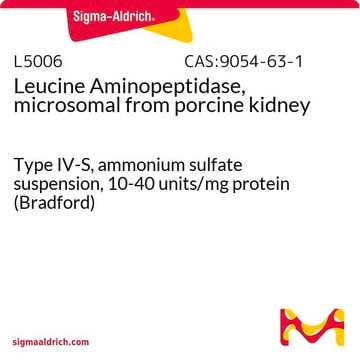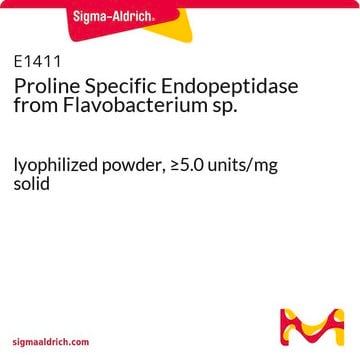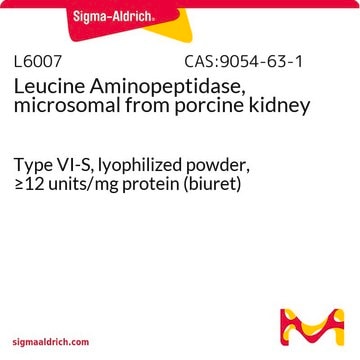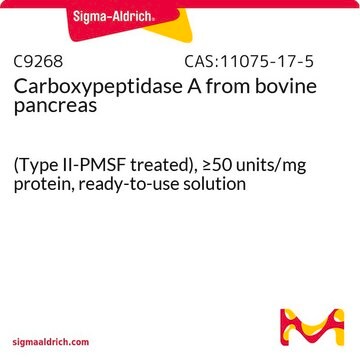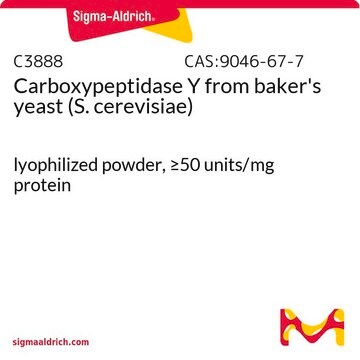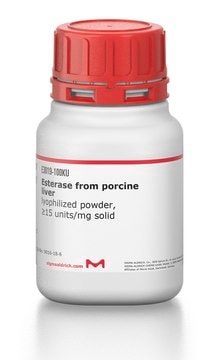P6675
Prolidase from porcine kidney
lyophilized powder, ≥100 units/mg protein
Sinónimos:
Aminoacyl-L-proline hydrolase, Imido Dipeptidase, Prolidase, Proline dipeptidase
About This Item
Productos recomendados
form
lyophilized powder
specific activity
≥100 units/mg protein
composition
Protein, 20-74% Lowry
storage temp.
−20°C
¿Está buscando productos similares? Visita Guía de comparación de productos
Categorías relacionadas
General description
Application
- in the enzymatic hydrolysis of porcine milk for the recovery of L-glutamine from proteins and peptides
- in the proteolysis of skim milk for the determination of ε-(γ-glutamyl)lysine and free aminoacids
- to determine its effect on the activity of enterococcin A 2000
Biochem/physiol Actions
Unit Definition
Physical form
signalword
Danger
hcodes
Hazard Classifications
Eye Irrit. 2 - Resp. Sens. 1 - Skin Irrit. 2 - STOT SE 3
target_organs
Respiratory system
Storage Class
11 - Combustible Solids
wgk_germany
WGK 1
Certificados de análisis (COA)
Busque Certificados de análisis (COA) introduciendo el número de lote del producto. Los números de lote se encuentran en la etiqueta del producto después de las palabras «Lot» o «Batch»
¿Ya tiene este producto?
Encuentre la documentación para los productos que ha comprado recientemente en la Biblioteca de documentos.
Los clientes también vieron
Nuestro equipo de científicos tiene experiencia en todas las áreas de investigación: Ciencias de la vida, Ciencia de los materiales, Síntesis química, Cromatografía, Analítica y muchas otras.
Póngase en contacto con el Servicio técnico